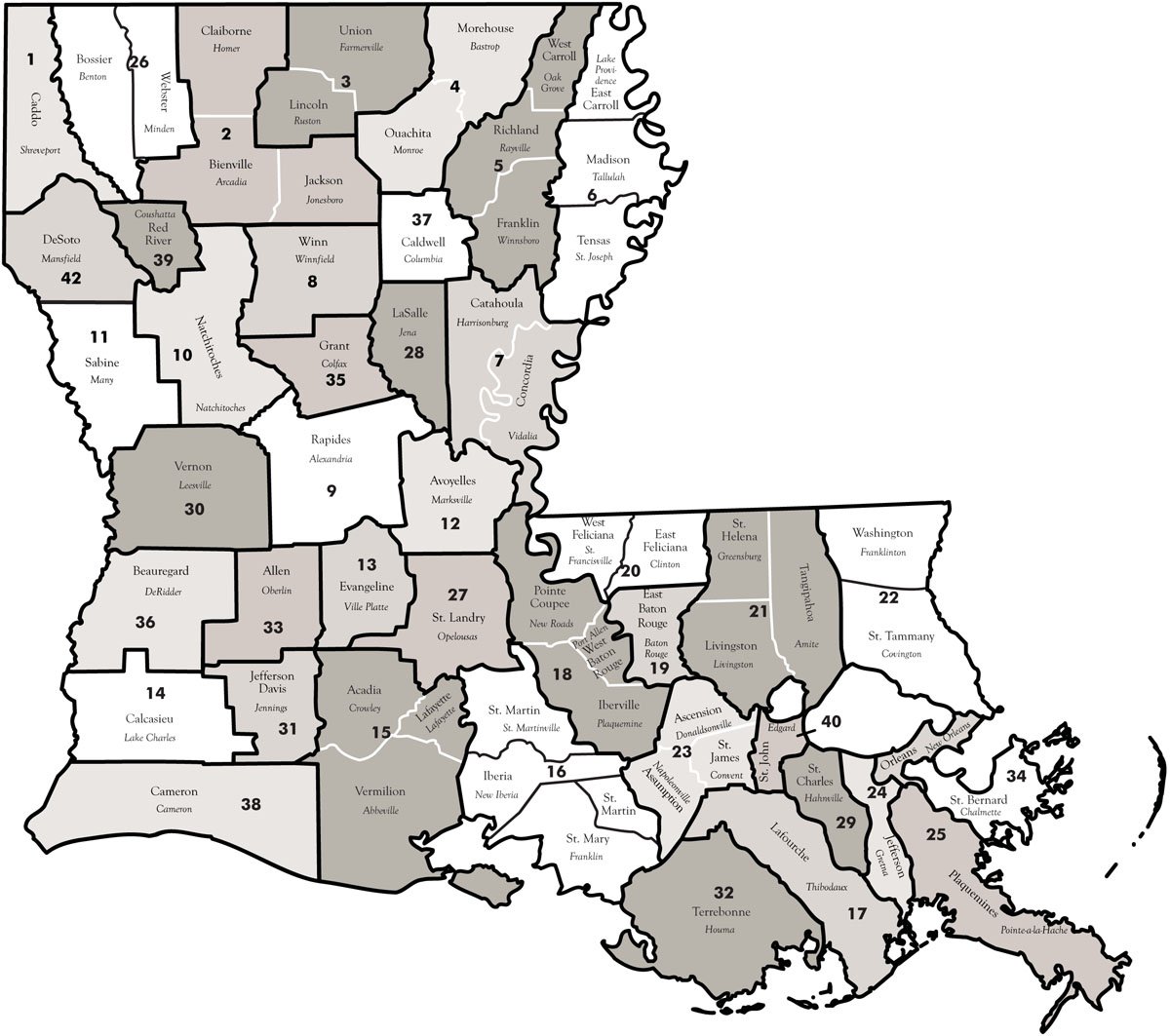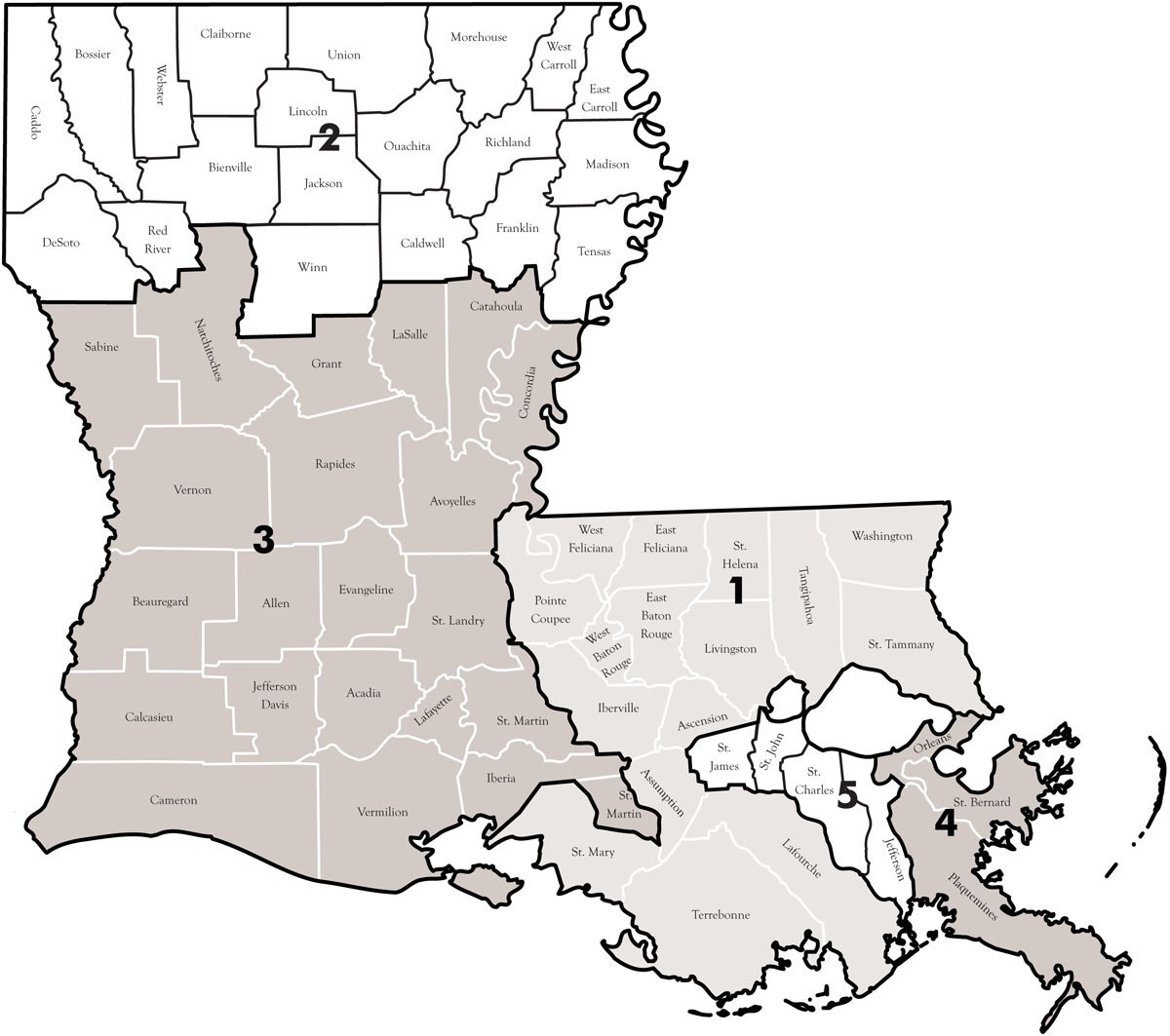The short answer to this question is: No.
The right to a first offender pardon is established in the Louisiana Constitution of 1974, Article IV, Section 5(E), and states in relevant part:
a first offender convicted of a non-violent crime, or convicted of aggravated battery, second degree battery, aggravated assault, mingling harmful substances, aggravated criminal damage to property, purse snatching, extortion, or illegal use of weapons or dangerous instrumentalities never previously convicted of a felony shall be pardoned automatically upon completion of his sentence, without a recommendation of the Board of Pardons and without action by the governor.
Louisiana Constitution of Article IV, Section 5(E). Louisiana Revised Statutes 15:572 elaborates on this power:
B.(1) A first offender never previously convicted of a felony shall be pardoned automatically upon completion of his sentence without a recommendation of the Board of Pardons and without action by the governor.
(2) No person convicted of a sex offense as defined in R.S. 15:541 or determined to be a sexually violent predator or a child predator under the provisions of R.S. 15:542.1 et seq. shall be exempt from the registration requirements of R.S. 15:542.1 et seq., as a result of a pardon under the provisions of this Subsection.
(3) Notwithstanding any provision of law to the contrary, no pardon shall be issued to a first offender unless that person has paid all of the court costs which were imposed in connection with the conviction of the crime for which the pardon is to be issued.
C. For the purposes of this Section, "first offender" means a person convicted within this state of a felony but never previously convicted of a felony within this state or convicted under the laws of any other state or of the United States or of any foreign government or country of a crime which, if committed in this state, would have been a felony, regardless of any previous convictions for any misdemeanors. Convictions in other jurisdictions which do not have counterparts in this state will be classified according to the laws of the jurisdiction of conviction.
D. On the day that an individual completes his sentence the Division of Probation and Parole of the Department of Corrections, after satisfying itself that (1) the individual is a first offender as defined herein and (2) the individual has completed his sentence shall issue a certificate recognizing and proclaiming that the petitioner is fully pardoned for the offense, and that he has all rights of citizenship and franchise, and shall transmit a copy of the certificate to the individual and to the clerk of court in and for the parish where the conviction occurred. This copy shall be filed in the record of the proceedings in which the conviction was obtained. However, once an automatic pardon is granted under the provisions of this Section, the individual who received such pardon shall not be entitled to receive another automatic pardon.
E. Notwithstanding any provision herein contained to the contrary, any person receiving a pardon under the provisions of Subparagraph (1) of Paragraph (E) of Section 5 of Article IV of the Louisiana Constitution of 1974 and this Section may be charged and punished as a second or multiple offender as provided in R.S. 15:529.1.
La. R.S. 15:542.
A first offender pardon does not remove the record from public access and it can still be used against a person in a subsequent prosecution.
The effect of an expungement is established in Louisiana Code of Criminal Procedure Article 973:
A. An expunged record of arrest or conviction shall be confidential and no longer considered to be a public record and shall not be made available to any person or other entity except for the following:
(1) To a member of a law enforcement or criminal justice agency or prosecutor who shall request that information in writing, certifying that the request is for the purpose of investigating, prosecuting, or enforcing criminal law, for the purpose of any other statutorily defined law enforcement or administrative duties, or for the purposes of the requirements of sex offender registration and notification pursuant to the provisions of R.S. 15:540 et seq.
(2) On order of a court of competent jurisdiction and after a contradictory hearing for good cause shown.
(3) To the person whose record has been expunged or his counsel.
(4) To a member of a law enforcement or criminal justice agency, prosecutor, or judge, who requests that information in writing, certifying that the request is for the purpose of defending a law enforcement, criminal justice agency, or prosecutor in a civil suit for damages resulting from wrongful arrest or other civil litigation and the expunged record is necessary to provide a proper defense.
B. Upon written request therefor and on a confidential basis, the information contained in an expunged record may be released to the following entities that shall maintain the confidentiality of such record: the Office of Financial Institutions, the Louisiana State Board of Medical Examiners, the Louisiana State Board of Nursing, the Louisiana State Board of Dentistry, the Louisiana State Board of Examiners of Psychologists, the Louisiana Board of Pharmacy, the Louisiana State Board of Social Work Examiners, the Emergency Medical Services Certification Commission, Louisiana Attorney Disciplinary Board, Office of Disciplinary Counsel, the Louisiana Supreme Court Committee on Bar Admissions, the Louisiana Department of Insurance, the Louisiana Licensed Professional Counselors Board of Examiners, the Louisiana State Board of Chiropractic Examiners, or any person or entity requesting a record of all criminal arrests and convictions pursuant to R.S. 15:587.1, or as otherwise provided by law.
C. Except as to those persons and other entities set forth in Paragraph A of this Article, no person whose record of arrest or conviction has been expunged shall be required to disclose to any person that he was arrested or convicted of the subject offense, or that the record of the arrest or conviction has been expunged.
D. Any person who fails to maintain the confidentiality of records as required by the provisions of this Article shall be subject to contempt proceedings.
E. Nothing in this Article shall be construed to limit or impair in any way the subsequent use of any expunged record of any arrests or convictions by a law enforcement agency, criminal justice agency, or prosecutor including its use as a predicate offense, for the purposes of the Habitual Offender Law, or as otherwise authorized by law.
F. Nothing in this Article shall be construed to limit or impair the authority of a law enforcement official to use an expunged record of any arrests or convictions in conducting an investigation to ascertain or confirm the qualifications of any person for any privilege or license as required or authorized by law.
G. Nothing in this Article shall be construed to limit or impair in any way the subsequent use of any expunged record of any arrests or convictions by a “news-gathering organization”. For the purposes of this Title, “news-gathering organization” means all of the following:
(1) A newspaper, or news publication, printed or electronic, of current news and intelligence of varied, broad, and general public interest, having been published for a minimum of one year and that can provide documentation of membership in a statewide or national press association, as represented by an employee thereof who can provide documentation of his employment with the newspaper, wire service, or news publication.
(2) A radio broadcast station, television broadcast station, cable television operator, or wire service as represented by an employee thereof who can provide documentation of his employment.
H. Nothing in this Article shall be construed to relieve a person who is required to register and provide notice as a child predator or sex offender of any obligations and responsibilities provided in R.S. 15:541 et seq.
La. CCrP. Art. 973.
Under current ATF guidelines, an expungement will serve to restore an individual’s right to possess a firearm under federal law. An expungement, like a first offender pardon, does not prevent the use of the expunged conviction from use against a person in a subsequent prosecution.
If you or someone you know has questions about eligibility for or obtaining an expungement and would like to set up a consult, give us a call at (318) 459-9111.


































